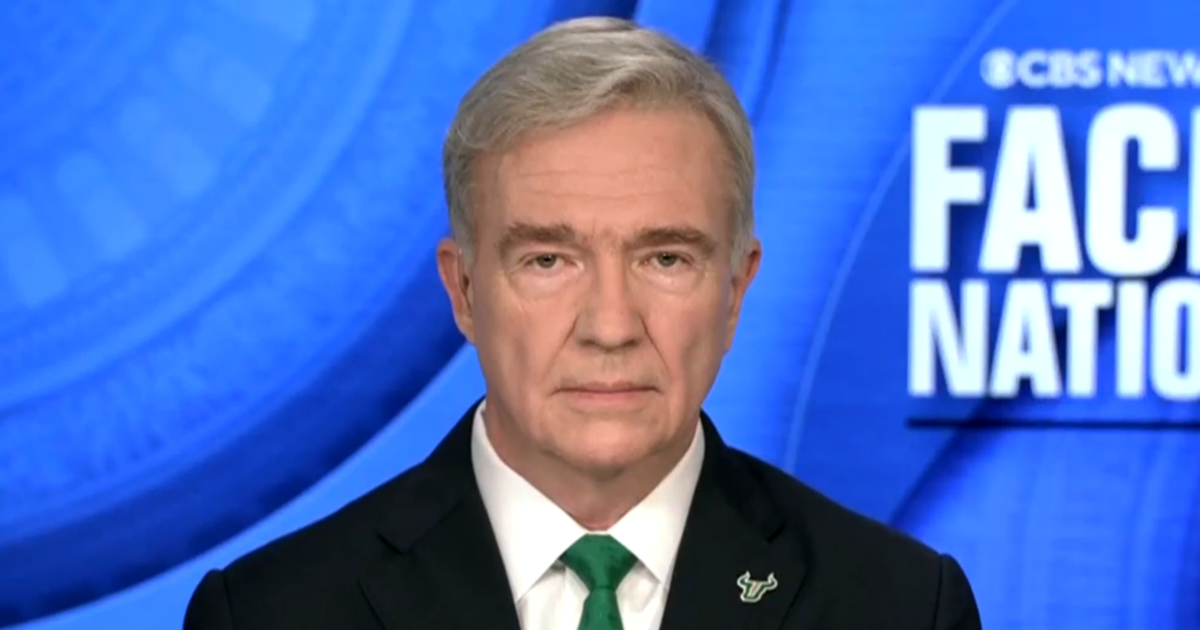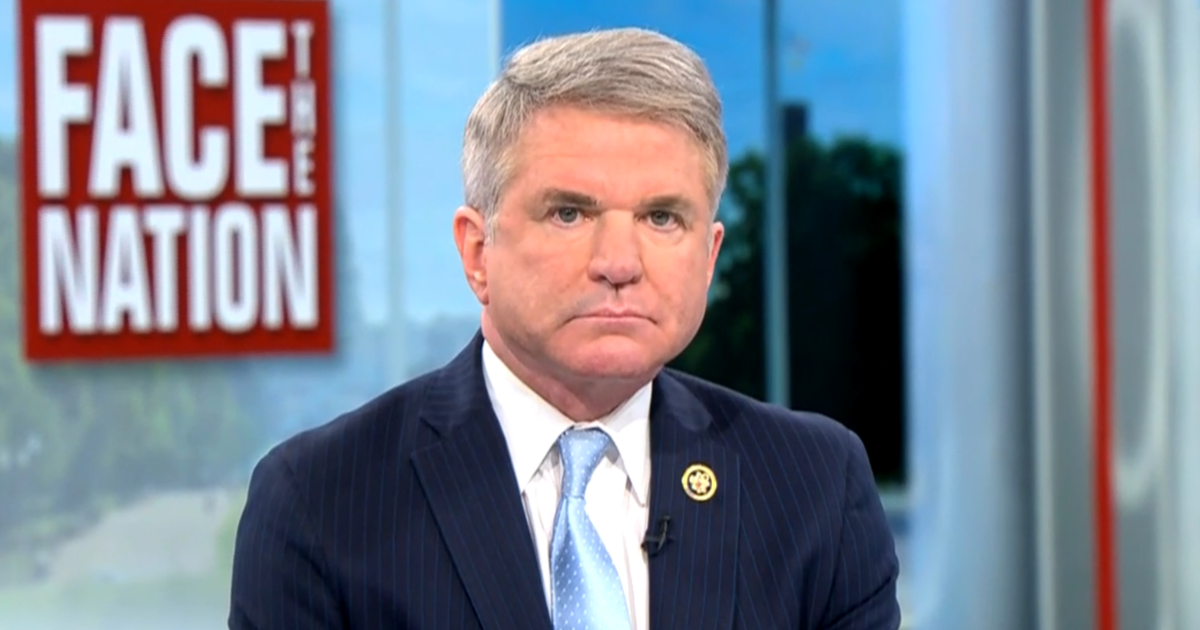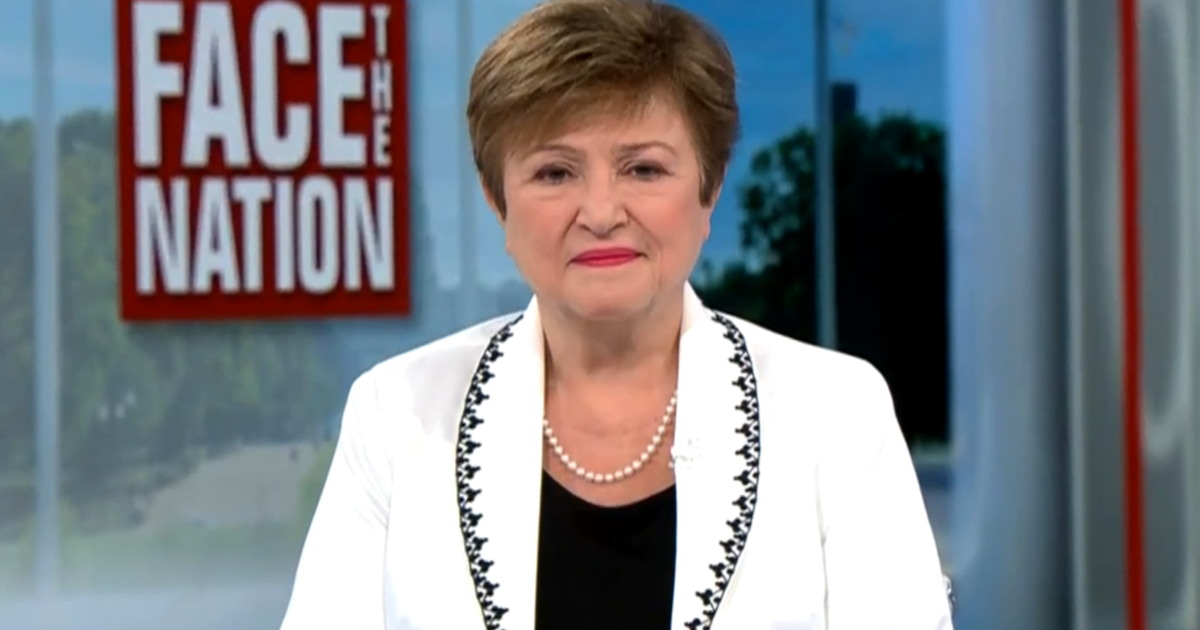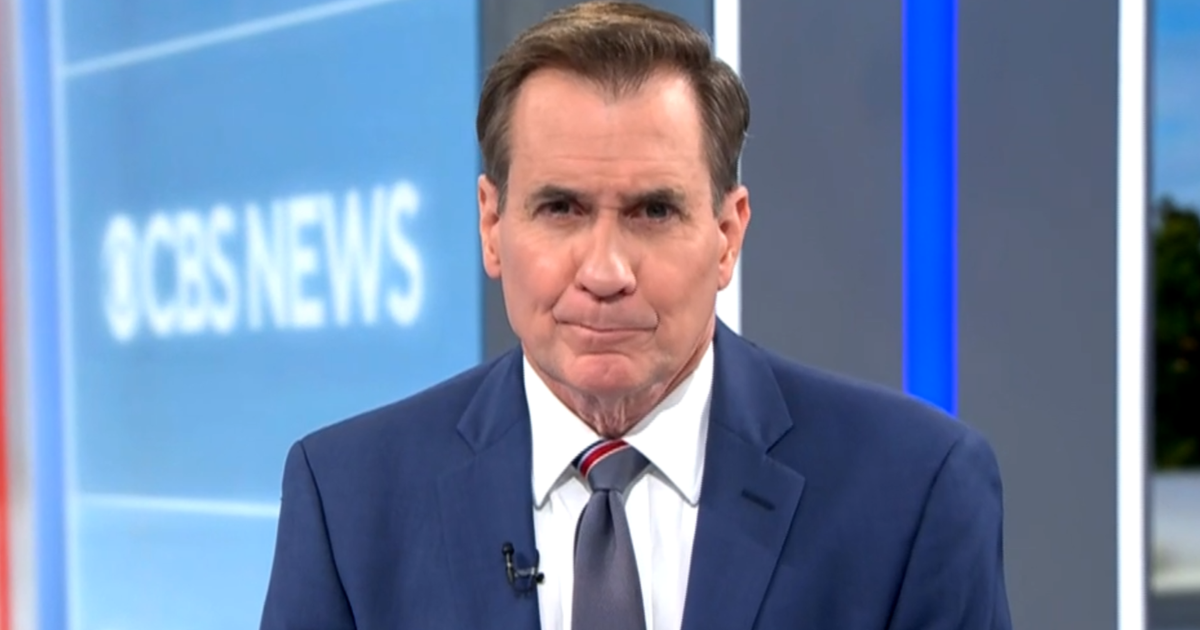Transcript: Senator Cory Booker discusses policing on "Face the Nation," October 3, 2021
The following is a transcript of an interview with Senator Cory Booker that aired Sunday, October 3, 2021, on "Face the Nation."
MARGARET BRENNAN: Last Sunday South Carolina Republican Senator Tim Scott gave us his explanation for why bipartisan negotiations on police reform collapsed. We spoke Friday to his Democratic counterpart. Senator Cory Booker told us that despite getting the Fraternal Order of Police, the country's largest police union, to support his bill, he couldn't get Republicans to do so. The last straw, he said, was when Senator Scott refused to codify former President Trump's 2020 executive orders, which required certain criteria for police departments to receive federal money. That prompted Senator Booker to walk away - something for which he says he takes "full responsibility."
SENATOR CORY BOOKER: We were willing to take a lot less. I told my staff, 'We're not going to even take half a loaf. Let's take a couple slices of bread.' The one area we had was on chokeholds, where there was conditions of grants and the like, but there was no other areas of agreement that we had yet established. And when we started giving some just basic lines on things that we didn't think were that great, we couldn't get the agreement there. And it's unfortunate, because it's basically- the issues that the families were asking - these are families of people that were murdered - the issues that the police officers who are now standing up and agreeing with us (and by far the majority of police officers are represented by at least the FOP.) What everybody was saying is, 'Let's take a situation, just increase transparency, raise professional standards, and create more accountability when an officer does something really, really against the law as well as our common values.' That's what we were looking for.
MARGARET BRENNAN: So specifically, because Senator Scott was specific in his criticism. He said do- that you wanted police departments to hand over data to the federal government from every investigative encounter with police, including routine traffic stops, or if they don't do that, they would risk losing money.
SEN. BOOKER: I think that we should be in a nation that if an officer uses physical force, whether that's a billy club, that that data should be collected. Right now, we do not have a collection on these things. I think, to give transparency to any town, we should start understanding what are the traffic stops, the demographics of those, and the like. We live in a country where both Senator Scott and I have had personal experiences with wrongfully stopped- being stopped by police, guns drawn on us, accused of things that we didn't do. If there's no transparency to those actions, we can't deal with those. As a former manager of a city, if you can't measure it, then you can't manage it.
MARGARET BRENNAN: So given that you say you did have some areas of agreement--
SEN. BOOKER: We had one area of agreement on chokeholds, which frankly, all across the states, red states and blue states are banning those actions. We did not have enough to do the kind of data transparency that was necessary, the kind of raise in professional standards that even police officers are now saying- the majority of folks who represent them. And we did not have real consequences. Remember, there are things we've been debating from the beginning about qualified immunity, other shields to holding officers that do bad things accountable.
MARGARET BRENNAN: But qualified immunity had been put to the side for the moment. Is that correct?
SEN. BOOKER: It-- definitely. This is what I mean about not being willing- not sticking with the full loaf.
MARGARET BRENNAN: Yeah.
SEN. BOOKER: But we did want, what the FOP and others agreed to, is some movement on the criminal standards and some movement on holding municipalities accountable for when their officers do horrible, horrible, illegal things.
MARGARET BRENNAN: So, the argument that- that Sen. Scott was making is that doing that - by saying, 'There will be punitive action against you, or you won't be eligible for those grants,' it is akin to restricting funding. And he used that term – 'defund the police' - which has frankly dogged Democrats for some time because it- it just it- it creates a perception of being somehow soft on crime, right? So how do you respond to that? Do you think when he is using that particular phrase in explaining why you walked away that- that this is just a political game?
SEN. BOOKER: Again, this is a moral moment. This is not about a back and forth between Tim and I. It's a moral moment. And to get big compromise bills done, which I've accomplished before, you have to have people that are willing to take risks--
MARGARET BRENNAN: But it was Democrats who walked away twice. That's what he would say, and that's what Republicans have said. In 2020, it was Democrats who walked away from a Republican police reform bill--
SEN. BOOKER: Again--
MARGARET BRENNAN: --This time, Democrats are walking away
SEN. BOOKER: I mean by that math, they walked away from the George Floyd bill. Remember, there was two bills put out. We were trying to do the honest, hard work of finding a compromise. Along that pathway, we did something people didn't expect. Major law enforcement organizations who were not known to agree with Democrats came to agreement. And we didn't- we were- we were not able to land it. We would not have gotten the people on the fringes. People in both parties would have disagreed with it. I will not give up on this bill because it is not a partisan issue. It is a moral issue.--
MARGARET BRENNAN: So--
SEN. BOOKER: --We have a problem in policing in America.
MARGARET BRENNAN: So, what does that mean? Because President Biden, when he blamed Republicans, said he's going to get this done through executive action. What you're saying, it sounds like you're going to try to revive this.
SEN. BOOKER: I think there's a lot that President Biden is going to step up and do, and I'm excited about that. For Washington world, I'm a baby. I've been here for eight years. But I do know now, on the big bills that I've been able to get passed, compromise bills in the criminal justice system, it often would take more than one Congress. We are going to do this because the families deserve it. There is not enough justice in policing.
MARGARET BRENNAN: When?
SEN. BOOKER: Whenever we can. I--
MARGARET BRENNAN: I mean, we had a racial justice protest movement that shook this country.
SEN. BOOKER: Right.
MARGARET BRENNAN: This was an opportunity.
SEN. BOOKER: Yes.
MARGARET BRENNAN: We've been through two Congresses now, are you telling us wait until after 2022?
SEN. BOOKER: So again, as Martin Luther King would say, 'How long?' You know, people have been told to wait. Justice delayed is justice denied, and for those families I've talked to over the last weeks, they are rightfully impatient. I cannot change the minds of some Republicans, but I've got enough momentum now that I'm going to continue to work. I can't tell you when, but I will tell you this. We have already seen progress from Kentucky to Colorado. We have seen the activism of people in the streets demanding it create real, substantive change. We offered in these negotiations--
MARGARET BRENNAN: But if Democrats lose the majority in 2022. You think you are more likely to get the kind of change you want?
SEN. BOOKER: I don't know what it is. I'm telling you I'm not giving up. And again, law enforcement leaders will tell you this: we have a lot of work to do, so that everybody doesn't feel like I felt growing up, and a lot of kids do, is when you see a police officer, your first instinct is fear, and not like, 'Hey, there's somebody here to help me.'
MARGARET BRENNAN: So-
SEN. BOOKER: --And so we need to create transparency, accountability and raise professional standards. The majority of police officers, at least the unions that represent them, agree with us now. We have more work to do to get this done.
MARGARET BRENNAN: Senator Scott says he's at the table. Will you come back to it or are talks completely dead at the moment?
SEN. BOOKER: Again, Senator Scott and I actually are friends. And so I'm more than confident, especially as I look at other Republicans there and other folks to deal with, that we're going to find a way to keep working on this issue. We came to a stalemate when we couldn't embody Donald Trump's EO in legislation, as is. That's problematic for me. But again, this is going to continue to be an urgency in my life. And as a person who has been able to deliver significant reform in the criminal justice space, I'm going to continue to work on this. And America- police officers as we've now seen, conservative think tanks, all are calling for change. We're going to build on that coalition and we're going to- I believe we're going to get this done.
MARGARET BRENNAN: Senator Booker, thank you for your time.
SEN. BOOKER: No, thank you, very much.
MARGARET BRENNAN: You can watch our full interview with Senator Booker on our website. We'll be back in a moment.



